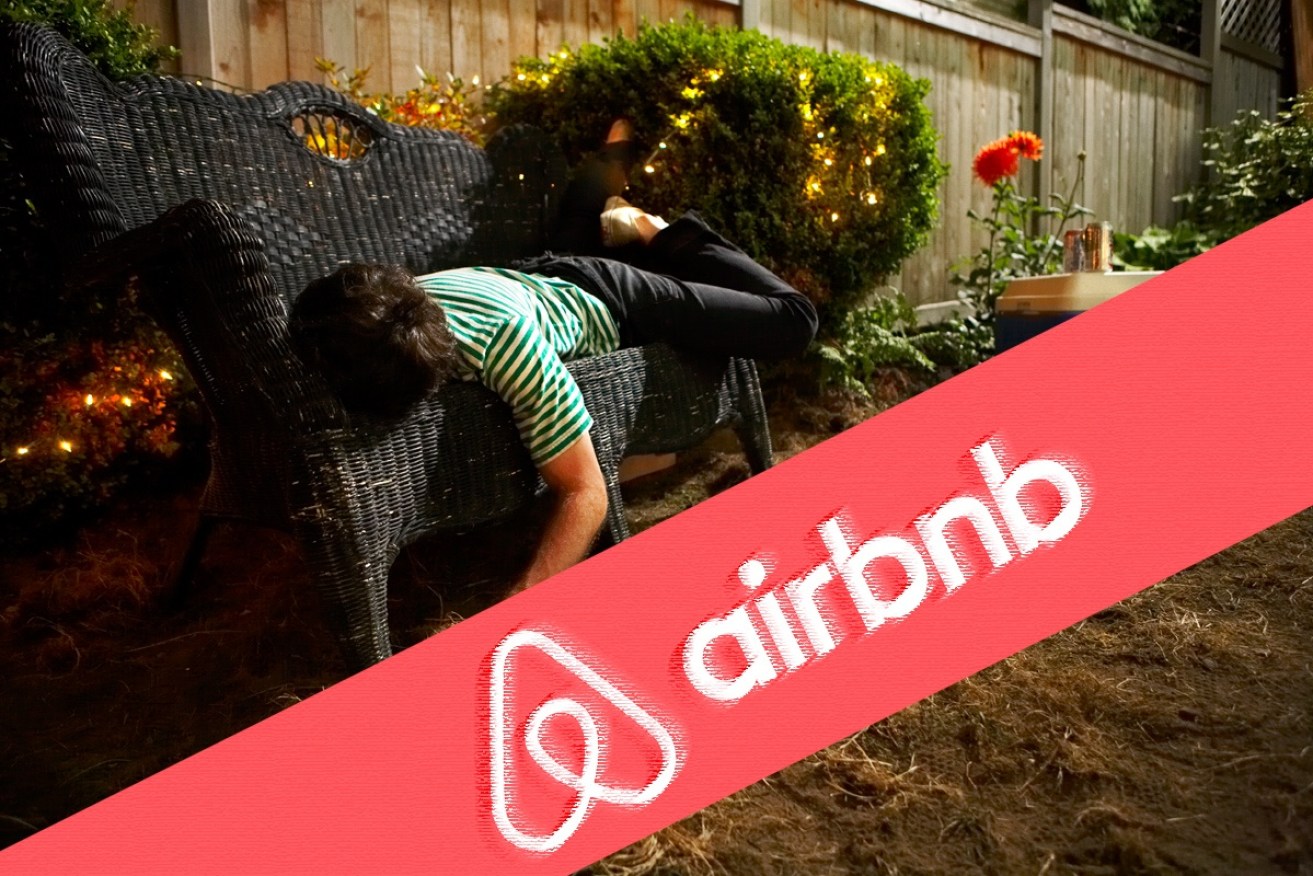Outrage at the rise of AirBnB ‘party houses’


AirBnB insists it has "no tolerance for bad behaviour". Photo: Getty (edited)
Angry residents have demanded action from state governments on the rise of boozy AirBnB party houses they say are ruining their peaceful communities.
The lobby group We Live Here says houses and apartments across Australia are increasingly being turned into alcohol-fuelled weekend night spots.
Co-founder Marshall Delves said “resident are angry that homes in their neighbourhoods are being used as ‘party houses’, with problems spilling out into the neighbourhood”.
The group said they had reports that proved the problem was nation-wide, not just restricted to Victoria.
“There’s no regulation and it’s not fair to the people who live in these areas – who receive none of the benefits, and none of the profits, but have to put up with all of the impacts,” Mr Delves said.
“It doesn’t matter if you live in the city or in a small town, the concerns are the same: we live here, but we don’t get a say.”
Dr David Beirman, tourism lecturer at UTS, said although he welcomed AirBnB and the holiday opportunities it opened up, there were also negative aspects that needed to be addressed.
“There are plenty of places where the people who take on AirBnB are people who’ve come to party, which is terrific for them and terrible for their neighbours,” he said.
“It comes down to people finding a way and a means to make a quick buck.”
Dr Beirman pointed to the rise of Australia as an international travel destination and a shortfall in holiday accommodation as one cause for the problem.
Single rooms in Sydney’s trendy Bondi can be hired for $100 and beyond a night. Dr Beirman said that even his block of flats has AirBnB residents.
“Fortunately for us the people who come in are really quiet. We’ve been a bit fortunate but technically speaking it’s actually illegal.”
Many residents are not so lucky, often having to deal with weekend long benders, hens nights and stag parties, and sometimes drug or alcohol affected revellers.
There are significant profits to be made from the AirBnB industry. Entire apartments in the CBDs of Australian cities go for $200 or more a night. Landlords can make in a few days what they might make in a week from regular tenants.
The legal status of AirBnB is a major problem for governments trying to regulate the industry. The local government in Barcelona, Spain, recently stepped up a campaign against the company.
There are reportedly 16,000 holiday rentals in the city, of which 7000 are unlicensed. Barcelona even fined Airbnb €600,000 ($A887,000) for continuing to advertise housing on the platform. Forty teams of inspectors chase down illegal rentals in the city.
A recent Victorian parliamentary inquiry prompted the state government to pledge to crack down on landlords whose properties were used for “perpetual parties”.
AirBnB, when contacted for comment regarding party houses and the disruption neighbours experience, told The New Daily “we have no tolerance for bad behaviour”.
“We also remove listings that fail to uphold our commitment to being a good neighbour”, a spokesperson said.
Neighbours can report specific listings and disruptive properties and AirBnB will review and act on those reports, the company said.
Victorian Minister for Consumer Affairs, Marlene Kairouz, issued a statement to The New Daily saying “apartment residents shouldn’t have to put up with bad behaviour by neighbouring short-stay visitors”.
“That’s why we introduced legislation that would make short-stay providers responsible for the behaviour of their guests.”
Under the reforms, for the first time apartment owners could be liable for any damage, noise or loss of amenity caused by their guests.
The Victorian Civil and Administrative Tribunal may soon have new powers to award compensation of up to $2000 to neighbours, and ban short stay apartments which are repeatedly used for unruly parties.
Guests could face fines of up to $1100 for a range of conduct breaches, such as being unreasonable noisey, behaving badly, causing a health, safety or security hazard, damaging common property or obstructing a resident from the using their property.
Short stay apartment owners may be ordered to pay neighbours’ compensation and any damage caused by their guests to common property.
Nick, a Melbourne resident, recently attended a weekend long party in a house in Melbourne’s outer north.
He said they were warned when they hired the house that there were “specifically no parties allowed”. They went ahead anyway.
Nick, who has used Airbnb in the past, said there were no complaints from the neighbours to the three-day party.
He said he and the 20 other guests were respectful by ensuring the noise “didn’t go insane”.








